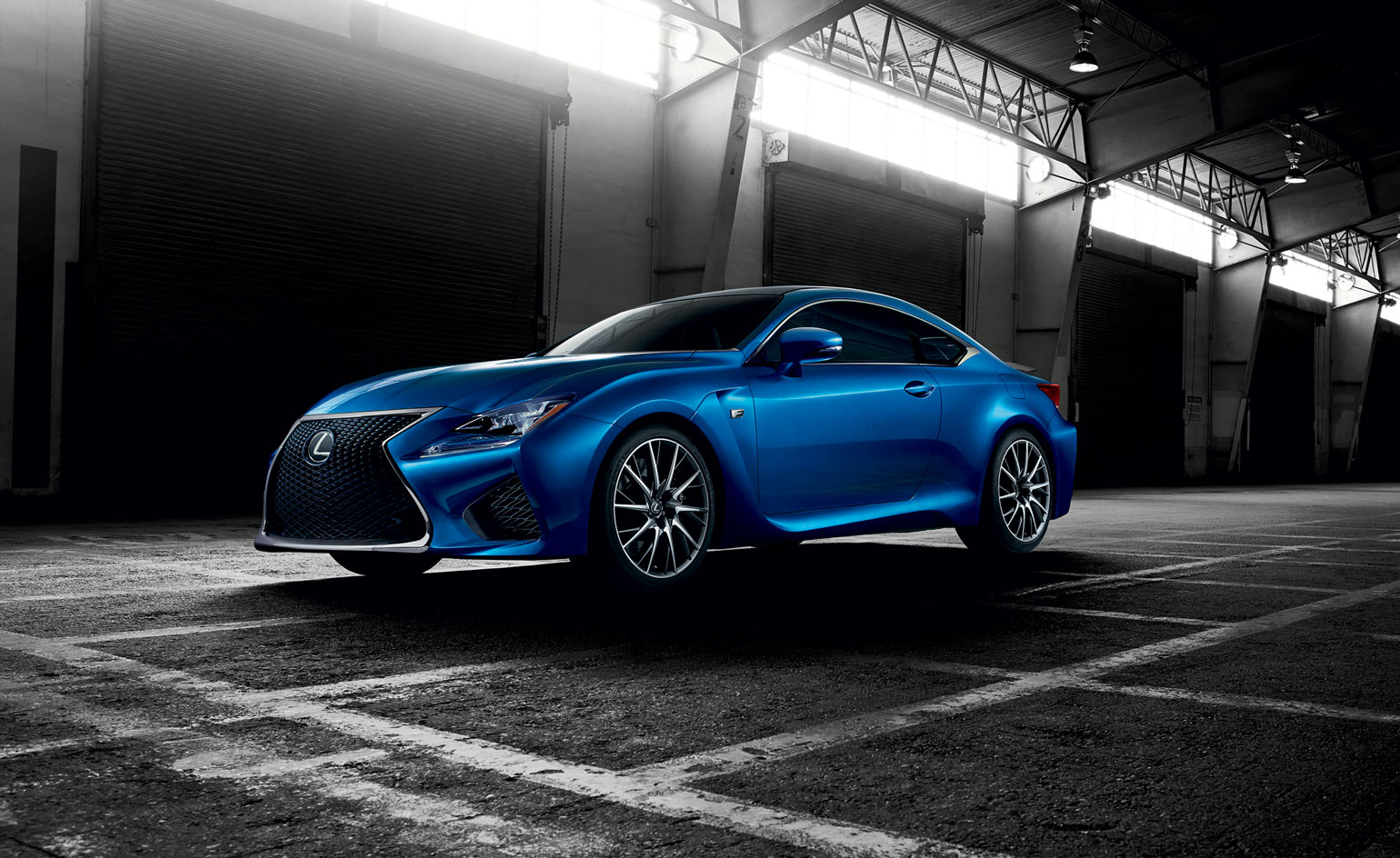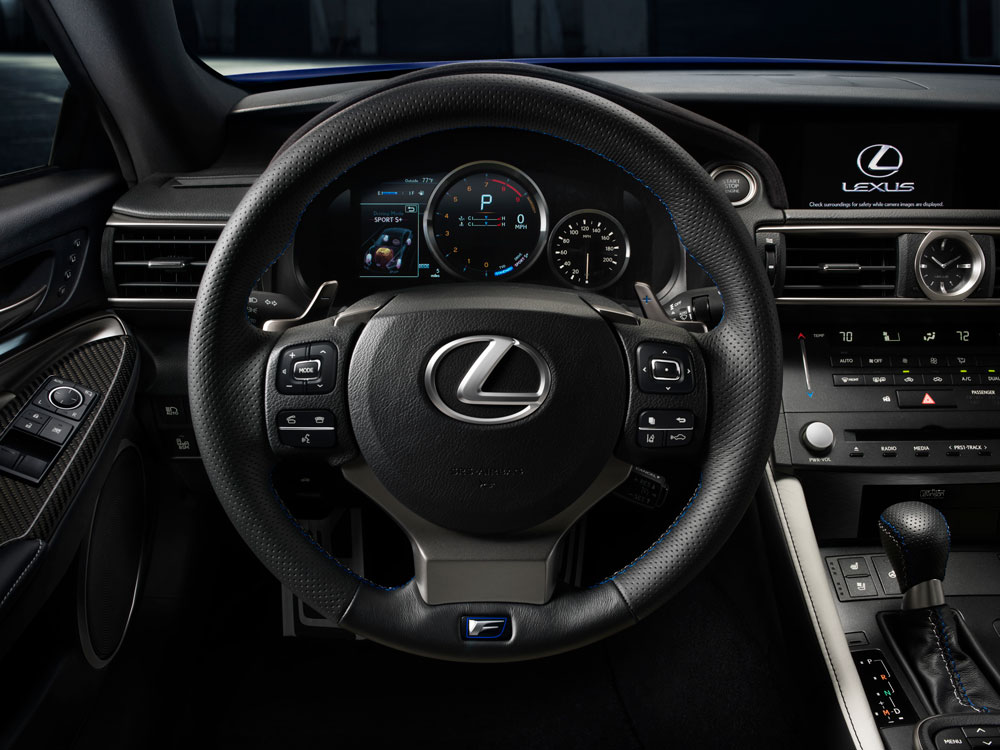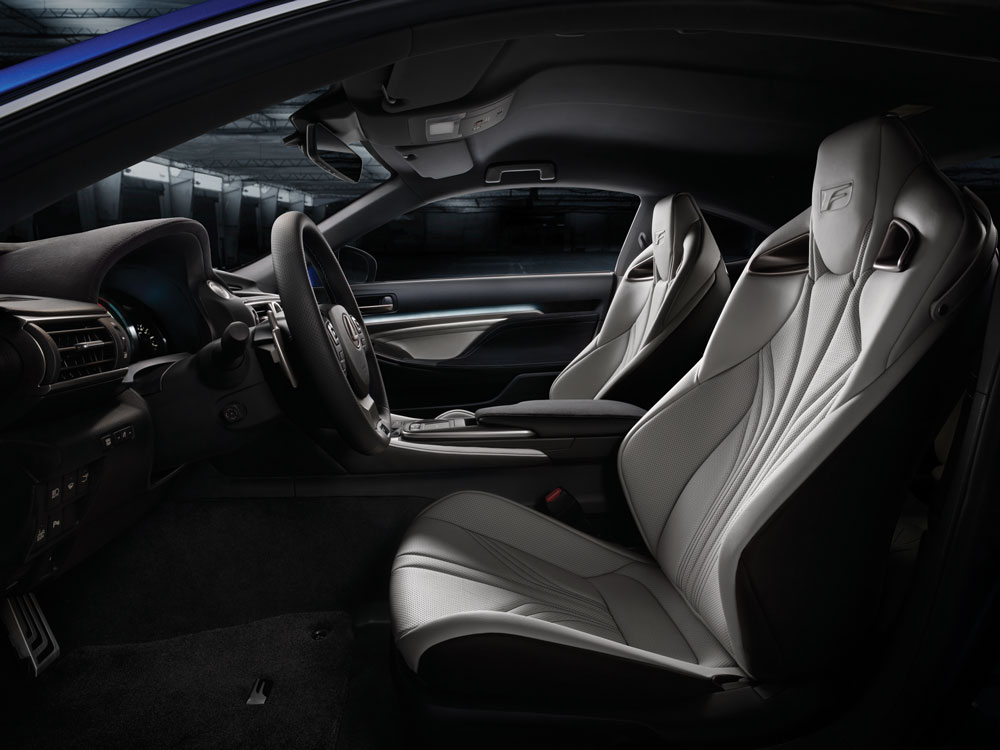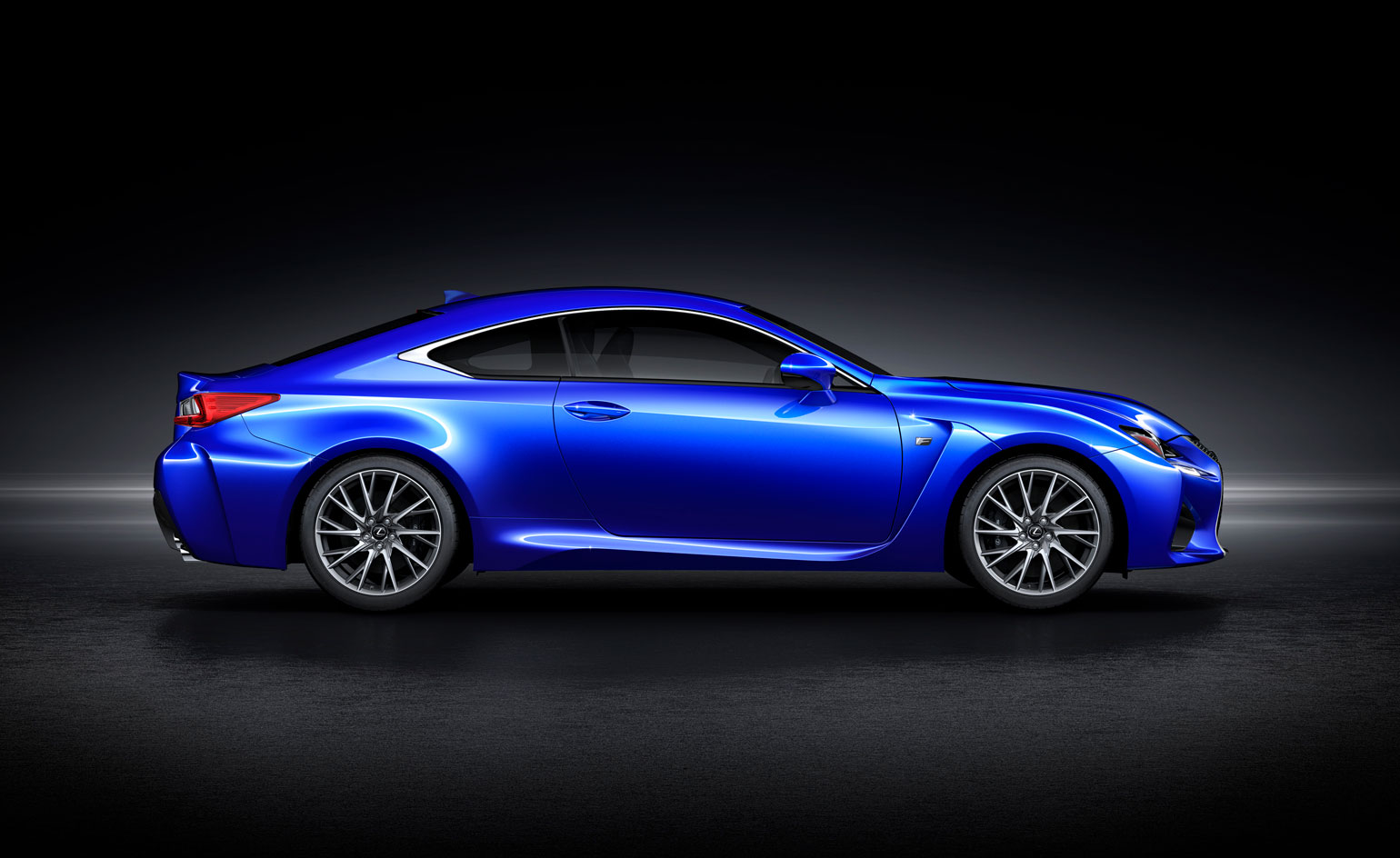Lexus RC F swaps the marque’s tech-first attitude for pure power

Lexus is sitting in a pretty sweet spot right now. The Japanese luxury brand has always promoted itself as a technology-led purveyor of excellence, enthusiastically spelling out the myriad ways in which engineering-led obsessions have honed and refined its products.
It was one of the first car companies to go all-in on hybrid propulsion, and while its design direction has swerved between classical but bland and awkwardly avant-garde, the underlying message is one of technology reigning supreme. In Milan and elsewhere, it curates wide-ranging shows that celebrate all aspects of material culture, presenting itself as true patron of art and industry.

Lexus cuts back on tech in the RC F
Surprisingly, the company has occasionally deviated from this line. Back in 2012 Lexus launched the devastatingly capable LFA, a hand-built supercar designed to tarry at the heels of Ferrari, Porsche and McLaren. It wasn’t replaced, but did usher in the ‘F’ performance suffix, revealing that the company still had one eye on this most traditional of routes to the high-end consumer: power. Arguably, with the hugely impressive LC500 the company has done just that, creating a compelling alternative to a Mercedes S-Class Coupe or BMW 8-Series.
This, however, is the RC F, the swiftest, lairiest version of Lexus’s mid-range coupe. It is not a thing of subtle beauty. From the distinctive raw carbon fibre bonnet and boot through to the flared wheel-arches and bevvy of electronic trickery, it’s intended as a purposeful riposte to German dominance. It’s certainly a brave manufacturer that decides to go after a class leader and beat it at its own game. For over 30 years, if you wanted a swift and svelte coupe the number one choice was BMW’s M3. Lexus originally built their brand essence on exacting and superlative imitation of what already existed, painstakingly benchmarking every facet of luxury motoring until they were sure they could do it better.

Inside the Lexus RC F
The RC F is an entertaining car to drive, but in its desire to be all things to everyone it loses a bit of that essential Lexus quality. By swapping out hybrid drive for a thumping great V8 it certainly delivers impressive performance, but at the expense of one of Lexus’s key differentiators. It doesn’t best the BMW, or even the Audi and Mercedes, either dynamically or visually. It’s comfortable, certainly, but in-car tech is moving on quick and this car feels a generation behind even though it has a standard equipment list that shames most other brands.
For the diehard Lexus aficionado who doesn’t wish to forsake the brand, the RC F will be a suitable sidekick, rather than a daily driver. For those who want a truer expression of the brand, the LC500 is a true high-tech super coupe. On the track, the RC F would almost certainly be the marque’s quickest car since the LFA; is this really a true reflection of future luxury?

From the distinctive raw carbon fibre bonnet and boot through to the flared wheel-arches and bevvy of electronic trickery, the RC F is a purposeful riposte to German dominance

Whilst entertaining to drive with a V8 engine substituted for hybrid drive, Lexus loses its essential quality in trying to appeal to a wider audience
INFORMATION
Lexus RC F, from £69,310. For more information, visit the Lexus website
Receive our daily digest of inspiration, escapism and design stories from around the world direct to your inbox.
Jonathan Bell has written for Wallpaper* magazine since 1999, covering everything from architecture and transport design to books, tech and graphic design. He is now the magazine’s Transport and Technology Editor. Jonathan has written and edited 15 books, including Concept Car Design, 21st Century House, and The New Modern House. He is also the host of Wallpaper’s first podcast.